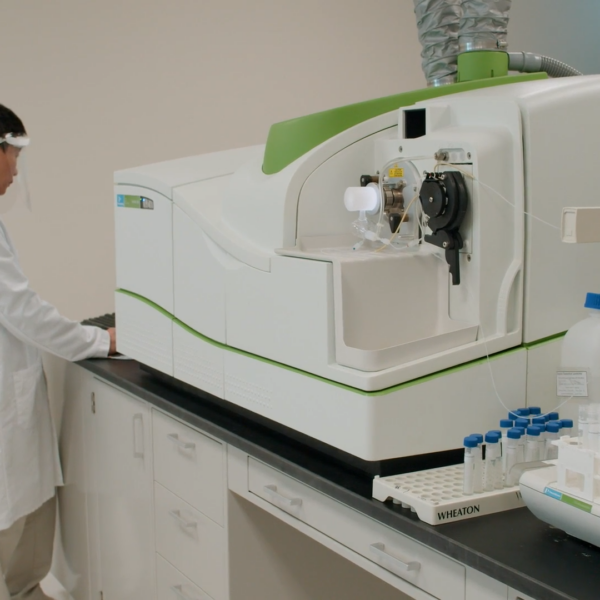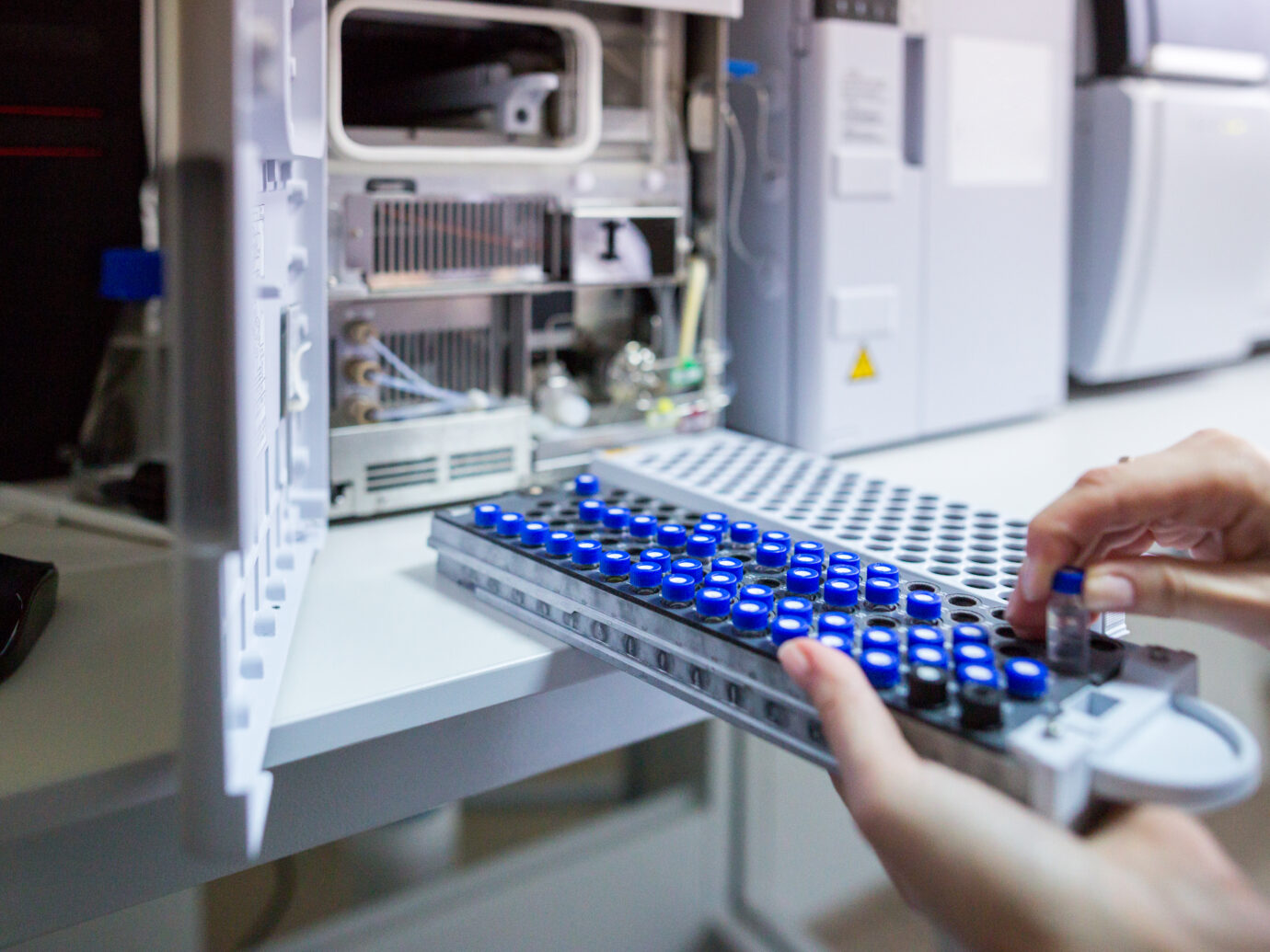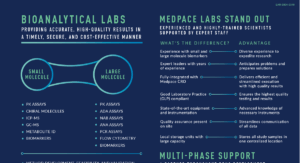
PK Studies for Large and Small Molecules
The bioanalytical component of pharmacokinetics (PK) is the most critical aspect of a PK study and the experts at Medpace Bioanalytical Laboratories understand the complexities of developing and validating PK methods and testing PK samples. With one of the highest PhD to staff ratios in the industry, Medpace expertly performs the bioanalytical component of PK studies at all phases of drug development.
PK Bioanalytical Method Development
It is important to develop a bioanalytical method for the drug candidate as early as possible in the drug development process. In most cases, PK bioanalysis will be needed during the discovery and development stage of drug development in order to assess and prioritize lead compounds. Choosing a well-versed lab such as Medpace Bioanalytical Laboratories is important because the more experienced the bioanalytical chemists, the faster (and therefore cheaper) they can develop a robust method that will be capable of validation.
PK Bioanalytical Validation
As the development of the drug candidate progresses, so do the methods used in the bioanalytical analysis. Once GLP studies are initiated, the bioanalytical method used for PK bioanalysis must be validated. Method validation is a critical component of performing regulated bioanalysis. Not only is it required by the FDA, but it is good science and ensures accurate, consistent results. A fully validated method is required for bioanalytical methods used in pivotal nonclinical studies and all clinical studies. A full validation will typically follow FDA Guidance Document, Bioanalytical Method Validation (May 2018) which requires testing for selectivity, specificity, matrix effect, calibration curve linearity, range, accuracy, precision, carry-over, dilution integrity/linearity, short-term and long-term stability and reinjection reproducibility for chromatography methods or parallelism for ligand binding assays. The scientists at Medpace Bioanalytical Laboratories routinely validate PK methods for a wide variety of sponsors.
Discovery DMPK Studies
The early stage of discovery DMPK bioanalysis is important to assess lead compounds. After the screening step in the discovery and development stage of drug development, thousands of potential drug candidates are to be whittled down to a manageable number. These lead compounds are then characterized to assess their potential as a drug candidate. One way to zero in on viable candidates is to perform an R&D drug metabolism and pharmacokinetic study. In the past, most drugs failed the drug approval process because of poor PK properties. By performing an early stage PK study, sponsors can have more confidence in the compounds they move forward with. The expert scientists at Medpace Bioanalytical Laboratories can develop screening PK methods within hours.
Preclinical PK Studies
Preclinical PK studies help determine the safety and dose of the candidate drug before first-in-man studies. Preclinical studies that will be submitted to the FDA as part of an IND must be conducted per GLP regulations including the preclinical PK bioanalysis. Typically, preclinical PK studies meant for regulatory submission are performed in a rodent species and non-rodent species. The preclinical PK data can be used to calculate the human equivalent dose (HED). A favorable PK profile in preclinical studies gives more assurance that the drug candidate is going to be safe and effective. Medpace Bioanalytical Laboratories performs PK bioanalytical studies for drug candidates at all stages of drug development, including those in the preclinical stage.
Clinical PK Studies
As the drug candidate moves into clinical trials, the goal of PK studies is to ensure that the right dosing regimen is applied to relevant patient populations. Data from Phase I studies are used to help design Phase II and Phase III trials. Phase I (first-in-man) dose escalation studies which are comprised of healthy volunteers, uses doses determined by the preclinical studies performed in animals. The initial Phase I study typically includes SAD/MAD (single or multiple ascending dose) PK components. Phase I PK studies also determine food effect on the PK profile. Phase II and Phase III trials are conducted in a patient population and consist of PK/PD dose-response analysis and pivotal bioequivalence studies. Medpace scientists are experts at conducting clinical trial PK studies and can help sponsors navigate the complexities involved with clinical PK studies.
Medpace has a Phase I Unit on site which has a wide spectrum of Phase I capabilities including the dosing component of PK studies. The Phase I Unit is a 40,000-square-foot in-patient and out-patient facility featuring a dormitory style unit with 24 beds in total, two semi-private units with 36 beds in total, centralized laboratory processing, licensed investigational drug service/pharmacy, and centralized food service. The breadth of service of the Phase I Unit includes: dose escalation, single and multiple dose studies, first-in-human (FIH), bioavailability and bioequivalence, drug-drug interaction, food effect, and thorough QT/QTc. Having the bioanalytical laboratory at the same location as the Phase I Unit improves timelines and helps ensure testing is seamless – core goals of Medpace.


